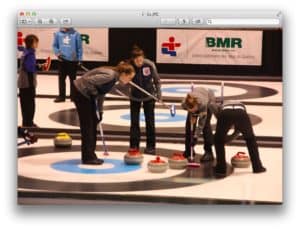Just about every parent gets to a point in their life where they cannot help but think about just what they will be leaving their children when they die.
Among the things that they think about are both the tangible, like money, property and other valuables, and the intangible, like life lessons, values, unforgettable life experiences and a true sense of their family legacy.
“What” is not the only question that comes up of course, there is also “why” and “how”. And let’s not forget the sub-parts of “what”, like “when”, “where”, and “who”, but they’re well beyond the scope of one blog post.
The “why” and the “how” are pretty important to work out, because they are so often the root cause of family conflict afterwards, when children are unclear as to why their parents arranged things as they did.
When I ask these questions of parents, the “what” is the easiest place to start, and I always begin with the tangible stuff. We are not ignoring the important intangible things, just delaying them until we get a better handle on stuff that everyone can see and agree on.
I’ve always been a sports fan, and maybe even a bigger fan of analogies, and plenty of sports analogies come to mind on the topic of “what you are leaving”.
In rugby, when a team scores a “try” (similar to a touchdown in football), they get to kick a convert for more points, but unlike in football, the spot of the kick depends on where the player downed the ball in the end zone.
So if a player scores a try near the sideline, he (or his teammate) needs to attempt a much more difficult convert than if he scored in the middle of the end zone.
Moral: The details of what you leave definitely affect others and their likelihood of success.
In hockey, the difference between a good goaltender and a great one is often their ability to control rebounds. A good goalie stops the puck, a great goalie will not only stop the puck, but also make sure that it ends up in a location that makes it more difficult for the opposition to score on the rebound.
Moral: It is important to think not only about what you leave your loved ones, but also what you do NOT leave to others.
In billiards, a good player will sink the ball in the pocket, and then see what the next shot will be. A great player will plan her shot so that she leaves the cue ball in a good spot for her next shot, or at least not in a great spot for her opponent should she miss.
Moral: Sometimes you need to decide what to leave, without knowing what comes next.
In curling, you always know that your opponent will be throwing the next stone, and once again there is a huge difference between good players and great ones. Also, curling is the ultimate team sport.
A good team will make their shots and hope for the best with what happens next. A great team will always consider a number of things before even choosing which shot to attempt:
- What is the score?
- What are we trying to do with this rock?
- What will the other team likely try with their next shot?
- Where do we ideally want all of the rocks to be when they all come to a rest?
- What happens if we miss, and how can we miss in a way that still gives us an OK result?
- What are we planning to try on our next shot?
Moral: Complex decisions always entail a number of questions, and the best decisions come when the members of the team know each others’ abilities, trust each other, and have a clear idea of what they are trying to do together.
The curling analogy fits best for me, as each player contributes to each shot, and a great team needs to have great players and be well coached.
Your kids are part of your team, aren’t they?
Who is coaching your family?





